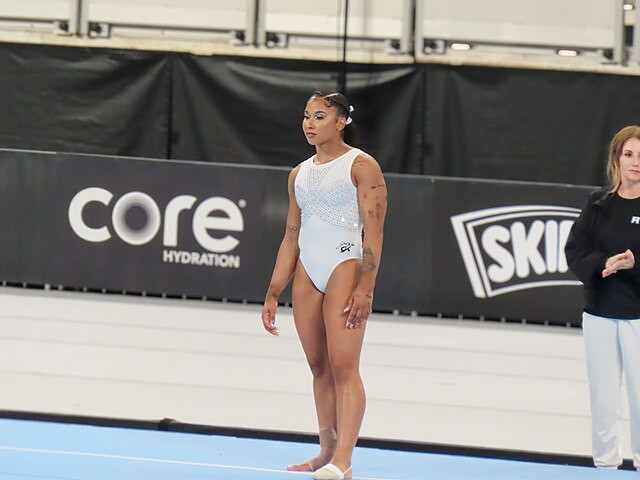U.S. gymnast Jordan Chiles has been ordered to return the bronze medal she won at the Paris Olympics after the Court of Arbitration for Sport (CAS) rejected an appeal by USA Gymnastics. The ruling, which has sent shockwaves through the gymnastics community, comes despite what U.S. officials describe as "conclusive" new evidence supporting Chiles' rightful claim to the medal.
The controversy began when Chiles was initially awarded the bronze medal in the floor exercise after a successful appeal by her coach, Cecile Landi. The appeal, which was upheld during the competition, moved Chiles from fifth to third place, bumping Romania's Ana Barbosu down to fourth. However, the Romanian Olympic Committee quickly challenged the timing of the appeal, arguing that it was submitted four seconds after the one-minute deadline for scoring inquiries had passed.
CAS ultimately sided with Romania, voiding the appeal and reinstating Barbosu as the bronze medalist. The ruling not only demoted Chiles back to fifth place but also triggered the International Olympic Committee's (IOC) demand that Chiles return her bronze medal.
In a statement released Monday, USA Gymnastics expressed deep disappointment with the decision, revealing that they had presented video evidence to CAS showing that Landi's appeal was made 13 seconds before the deadline. However, CAS refused to reconsider its ruling, citing its rules against reviewing arbitral awards, even when new evidence is provided.
"We are deeply disappointed by the notification and will continue to pursue every possible avenue and appeal process, including to the Swiss Federal Tribunal, to ensure the just scoring, placement, and medal award for Jordan," USA Gymnastics said in their statement. The organization's commitment to securing justice for Chiles underscores the high stakes and intensity of the ongoing legal battle.
This dispute, centered around a matter of mere seconds, has set the stage for what could be a protracted legal fight that might last months or even years. Any further appeal could escalate to Switzerland's highest court, the Swiss Federal Tribunal, or potentially to the European Court of Human Rights.
The ruling has drawn considerable attention not just within the gymnastics world but also from prominent public figures. Rapper Flavor Flav, known for his outspoken support of 2024 Olympians, offered a gesture of solidarity by crafting a bedazzled bronze medal for Chiles as a temporary replacement. "Thank you. Means the world," Chiles' mother, Gina, wrote on social media in response, noting that her daughter is currently avoiding public platforms due to the stress of the situation.
The IOC has announced that it will collaborate with the U.S. Olympic and Paralympic Committee (USOPC) to facilitate the return of Chiles' bronze medal and will work with the Romanian Olympic Committee to plan a reallocation ceremony for Barbosu. The Romanian team had previously suggested that the bronze medal be shared between Barbosu and Chiles, but this proposal was not accepted.
The case highlights the intense scrutiny and pressure that accompanies Olympic competition, where split-second decisions can have monumental consequences. The impact of this ruling extends beyond Chiles and Barbosu, casting a shadow over the integrity of the scoring process and the mechanisms in place to ensure fair competition.
While Chiles did secure a gold medal as part of the U.S. team in the all-around competition, the loss of her individual bronze is a significant personal blow. Barbosu, only 18 years old, expressed her empathy for Chiles and fellow competitor Sabrina Maneca-Voinea, who finished fourth after the initial results. "I know what you are feeling because I've been through the same," Barbosu wrote in a social media post. "But I know you'll come back stronger. I hope from deep in my heart that at the next Olympics, all three of us will share the same podium."




